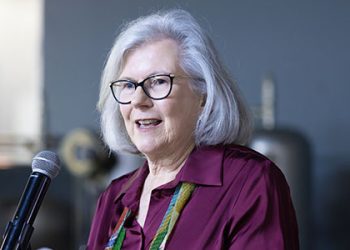School drop-out has been one of the critical challenges that bedevil most developing sub-Saharan countries’ education systems. If the problem persists without any innovative intervention measures it means the number of unskilled young people in Africa would increase substantially. It is this dire situation that troubled and pre-occupied the mind of young Dr Neema Mduma because she is convinced that education is the only mechanism that countries can realistically and systematically use to address some of their deep socio-economic and developmental challenges.
Closing knowledge gaps
Dr Mduma believes provision of quality education will equip majority of children, especially girl learners, with relevant skills for them to avoid the vicious cycle of poverty and hopelessness into which they are locked. She believes that excellence in STEMi is very significant in closing knowledge gaps that exist in most African countries.
Stop premature learner exit
To help turn the situation around, the Tanzania-born genius identified the deployment of the latest technologies such as data science, machine learning and artificial intelligence. These she believes are strategic platforms that can be used to effectively tackle the problem of school drop-outs. She went a step further and set up BakiShule with the specific intention of preventing further students from prematurely exiting the education system. To achieve this, she organises free training and workshops to inspire and expose girls to a whole range of STEMi related careers.
Early warning signs
To empower education managers and authorities in stemming the tide of school dropout rates, Dr Mduma, looked at a variety of factors that could serve as early warning indicators. These include data sets and as well other equally important details such as age, gender, parent engagement (both with the school and also in terms of homework and reading), and income measured through number of meals per day. She says these information helps them to quickly identify those students most-at-risk and based on this they advise school managers to take urgent remedial and intervention measures.
Education qualifications
Dr Mduma’s education trajectory suggests that she was a genius from an early age. She started her education in 1996 at Bungo Primary School in Morogoro, Tanzania where she did both ordinary level and advanced level. In 2003 she enrolled at the Kilakala Secondary School, also in Morogoro, which is dedicated for talented students. Upon completing her high education, she went to Tumaini University in Iringa to study Information Technology.
Dr Mduma is currently employed as a lecturer by the Nelson Mandela African Institution of Science and Technology and holds the following qualifications:
- Doctor of Philosophy – PhD in Information and Communication Sciences and Engineering, Master of Science – MSc in Information and Communication Science and
- Engineering from The Nelson Mandela African Institution of Science and Technology
- BSc in Information Technology from Tumaini University Iringa
Inspired by successful women
Dr Mduma says she gets inspiration from women who are doing well in the sciences, particularly in such specialist fields such as astronauts, neurosurgeons and women who work in machine learning and artificial intelligence. She singles out Dr Fei-Fei Li, who is the inaugural Sequoia Professor in the computer science department at Stanford University, and co-director of Stanford’s Human-Centered Artificial Intelligence.
Future collaborations
She also says she is inspired by three women who recently won Nobel Prizes in Chemistry and Physics. Dr Mduma says she has always been encouraged to study sciences and, adding the Nobel Prize accolade will serve as an inspiration and encouragement for all young girls and women. This shows that women can shine in science, says Dr Mduma, who also believes in learning from others and building networks for future collaborations.







